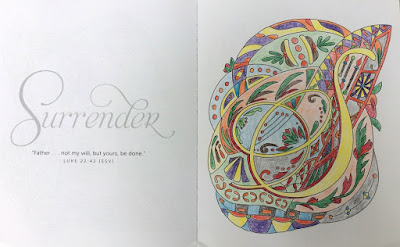We have been in Nairobi for nearly 4 weeks now, addressing Bob’s sickness and doing everything we can to promote his return to health. We finally got a positive diagnosis this week--Bob tested positive for the Epstein-Barr virus (aka Mono). During this month of being ‘sidelined’ for sickness, what is a good introvert thing to do? Read, of course! Bob hasn’t had much physical or mental energy, but reading a book together provided a good low-key distraction. Either together or separately we’ve been reading an eclectic mix of interesting books this month, some that have felt particularly relevant to our situation. So I thought I would share what some of them are.
1. A Long Walk to Water, by Linda Sue Park.
This based-on-a-true-story narrative describes the lives of two children in South Sudan, in two different decades. It is really written for older children (middle school?), but adults would enjoy it too! It is a great description of the every-day challenge of life for a refugee or people in a situation like South Sudan, and the perseverance and resourcefulness it takes to survive. A powerful and poignant story!
2. Into the Niger Bend, by Jules Verne.
We stumbled on this novel in the library of the guest house here in Nairobi. We wanted something light to read aloud, and Jules Verne’s humorous dialog and eccentric characters made us laugh when life felt otherwise rather discouraging. Unfortunately, this book is just the first section of a larger novel, so it left the characters stranded and under attack in the middle of the Sahara dessert, and we are not able to access the next book in the series. And because it is one of Jules Verne’s lesser-known works, there does not seem to be a kindle version. If anyone can find one, please let us know!
3. A Concise History of South Sudan, Edited by Anders Breidlid, et al
The authorized history of South Sudan, used as a textbook in high schools within the country. We found it in a bookstore in Juba, and I thought it would be a good historical introduction to our new host country. We appreciate that it starts the history as far back as archeological evidence allows, thousands of years ago, and describes the origins and movements of peoples in the region, including the illustrious history of several kingdoms and ‘black pharoahs’. When the Bible refers to Cush (e.g. Isaiah 18), it is probably referring to modern-day Sudan. I also enjoy reading about the distinctions and origins of the many tribes of South Sudan, although it gets to be more detail than I can take in as a newcomer!
3. Bird by Bird, by Anne Lamott
Another book I stumbled on in the guest house library. I don’t consider myself a ‘writer’, but this book of advice about writing was helpful and humorous. As a reader, I often fall into the perception that the book or article I am reading was produced as the words just spilled effortlessly onto the page as fast as the author could type them. The book is a good reminder of how much difficult mental work goes into writing, and of the importance of editing and revising (which I don’t do nearly enough of).
4. Extreme Prayer, by Greg Pruett
As we were praying for Bob’s recovery and asking for prayer from others, I remembered this book, recommended to me a few months ago. I found a Kindle version (e-books are incredible for those of us living internationally!), and started reading about Greg Pruett’s testimony of life and mylinistry in West Africa. I appreciate that much of his growth in faith and his commitment to pray came out of humbling experiences. Isn’t that the way with all of us? This book is a wonderful inspiration to consider God’s vision for His Kingdom and how He wants us to join him.
5. The Road from Coorain, by Jill Ker Conway
I found an online book club that is reading this book, and decided to join in the discussion. In this memoir of her early life, Conway describes growing up on a sheep farm in the Australian Outback in the 1930s and 40’s. She gives vivid descriptions of the bleak landscape, the challenges of raising sheep in the arid climate, and the unique cultures that her family mixes in. Her father dies early in life, and her family pushes on through that tragedy, drought, and the depression of the 1930’s.
6. Hinds Feet on High Places, by Hannah Hurnard
After we finished Into the Niger Bend, we stumbled on this classic, again in the guest house library, and it felt like a good one to read together. In this season of struggling with sickness and having to surrender our plans and control, this book feels so applicable and encouraging. The analogy and imagery of this story are incredible, and it is evident that this is written out of much life experience and encounters with God. One quote that stands out is when the Shepherd chides Much-Afraid after an encounter with her enemies, “When you wear the weed of impatience in your heart instead of the flower Acceptance-with-Joy, you will always find your enemies get an advantage over you.”
Reading Hinds Feet on High Places at the guest house in Nairobi
We are so grateful for the company of these books that have inspired us, spoken truth, or provided an escape from the drudgery of being sick. Any other books you want to recommend to us?






